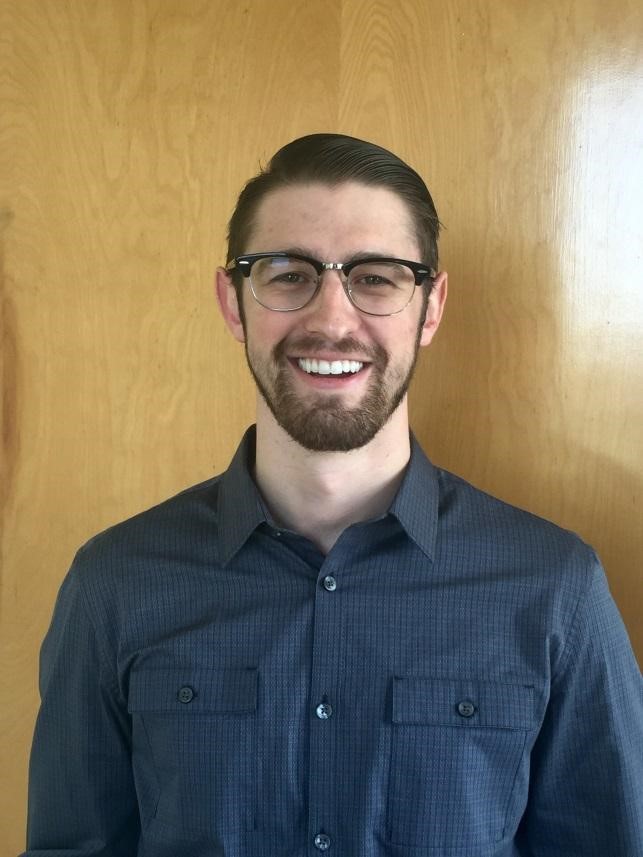Roxann Guerrette
Roxann is from the small town of Ste-Anne of Madawaska, New Brunswick. She always had the desire and motivation to expand her knowledge in the biomedical field. This being said, she pursued a Bachelor of Science (BSc) degree in Ottawa at la Cité collégiale. Knowing the importance of finding a cancer cure, she dedicated her co-op program to the field of cancer and conducted an internship at Atlantic Cancer Research Institute under the supervision of Dr Gilles Robichaud and at the Ottawa Hospital Research Institute under the supervision of Dr Luc Sabourin. Her projects focused on aggressive cancer cell behavior and genetic elements leading to breast cancer malignancy.
In September of 2013, she initiated her Master's program in Science (MSc) at Université de Moncton supervised by Dr. Gilles Robichaud. Roxann's research project has received the attention by the scientific community and has been funded by various funding agencies such as: The Canadian Institute of Health Research, the New Brunswick Innovation Foundation, TD Bank, Assumption Life and the Beatrice Hunter Cancer Research Institute. Given Roxann's extracurricular activities, she has also been recognized by many distinctions such as the Student Excellence Award from the Science Faculty at the Université de Moncton.
In January of 2015, Roxann’s thesis was deemed extremely relevant and was thus fast-tracked to the PhD program. She intends to pursue breast cancer research through a postdoctoral fellowship in personalized medicine. She aspires to be a prolific researcher in New Brunswick. Roxann is honored to be recipient and ambassador of the Leonard and Kathleen O’Brien Humanitarian Trust.
Jane Thomson
Jane Thomson is currently a Ph.D. candidate in law at Queen’s University and a 2016 Vanier Scholar. She also holds the Queen’s R. Samuel McLaughlin Fellowship. Her research focuses on the use of private law theory to affect social and economic legal reform, with a focus on how attitudes and biases within the legal community itself may exacerbate problems associated with access to justice in Canada.
Jane holds a Master of Laws from Harvard Law School and a Bachelor of Laws from Dalhousie University. She served as law clerk to the Honourable Justice Cromwell at the Supreme Court of Canada, and to the Honourable Justices MacPherson, Cronk, Juriansz and MacFarland at the Ontario Court of Appeal. Jane also holds undergraduate and graduate degrees in political science from Carleton University and Simon Fraser University, respectively.
A member of the Law Society of Upper Canada since 2009, Jane practiced family law for three years in Toronto and Ottawa. She has also served as a part-time professor at the University of Ottawa’s Faculty of Law for two years. Recently, Jane accepted a tenure track position at the University of New Brunswick’s Faculty of Law commencing in 2017.
A graduate of Fredericton High School and valedictorian in 1997, Jane currently lives in Ottawa with her family, which includes her husband, Michael, their 19 month old daughter, Poppy, and their bullmastiff, Tom.
Lillian MacNeill
Lillian was raised in a rural community outside of Saint John, New Brunswick by her parents Gay and Allan Fanjoy. Early on in life, Lillian developed a fascination with how the mind and body work, and upon completing high school she received a Lord Beaverbrook Scholarship to pursue psychology at the University of New Brunswick in Saint John. She holds a Bachelor of Arts (Honors) in Psychology, with a minor in Cognitive Neuroscience, as well as a Master of Arts degree in Experimental Psychology, which was supported by a Joseph-Armand Bombardier Canada Master's Scholarship from the Social Sciences and Humanities Research Council (SSHRC).
She is currently working toward her PhD in Experimental Psychology at the University of New Brunswick in Saint John, which is supported by a Joseph-Armand Bombardier Doctoral Scholarship from the Social Sciences and Humanities Research Council (SSHRC). Her main areas of research include addiction recovery and chronic pain. Lillian is very grateful to the O’Brien Foundation for the support of her current research, which is investigating the role of patient engagement in chronic pain and quality of life outcomes following orthopaedic surgery.
In addition to her doctoral studies, Lillian is involved in community research examining the effectiveness of local outpatient programs for individuals living with addictions. After completing her doctoral degree, she hopes to work in the field of health research, with a primary focus on patient recovery and well-being.
Jérémie B. Dupuis

Jérémie B. Dupuis is a Master’s degree student in psychology at the Université de Moncton under the supervision of Dr. Ann M. Beaton. His field of research is intergroup relations and collective identity, more specifically the effects of collective identity profiles on the mental health of young Acadians.
In 2012, Jérémie completed the Health Sciences diploma at the Université de Moncton. He then continued his studies at the Université de Montréal, receiving his bachelor’s degree in psychology in 2015. During his last year of bachelor study, he worked as Editor in Chief of the Journal of Interpersonal Relations Intergroup Relations and Identity (JIRIRI), an international scientific psychology journal for undergraduate students. It is at this time that his passion for research grew exponentially.
Since his return to the Université de Moncton, Jérémie has been working to promote research in psychology by organising bi-weekly seminars where undergraduate, masters and doctoral students can present their research projects and receive feedback from their peers. He also works as Coordinator for a thematic number of the Linguistic Minority and Society journal.
Jérémie is originally from Dieppe, New Brunswick. When he’s not in his research laboratory, he can be found hiking or cycling in various locations across the province. Don’t be surprised if you cross paths with him at Fundy National Park!
Brady K. Quinn
Brady K. Quinn grew up in the small, seaside town of Parrsboro, Nova Scotia. He spent most of his youth in the blueberry fields, woods, and intertidal flats around his home, which instilled in him a passion for learning about the natural world. This led him to study Biology at Mount Allison University in Sackville, New Brunswick, where he completed an Honours thesis with Dr. Diana Hamilton and Melanie R. Boudreau in 2010. Brady’s Honours experiment showed that competitive interactions between invasive green crabs and dogwhelks mediate their impacts on their mussel prey.
Brady then did his M.Sc. in Biology at the University of New Brunswick in Saint John, New Brunswick with Dr. Rémy Rochette and Dr. Joël Chassé. Brady developed a computer modeling system to estimate whether and by how much drift of American lobster larvae could connect different lobster fisheries. Unlike adult lobsters, larvae live in the ocean’s surface waters and can thus drift with currents. Brady’s M.Sc., completed in 2014, showed that much drift could occur among lobster fisheries, potentially connecting them in important ways. However, uncertainties remained because data for many aspects of lobster biology that could reduce drift were not available during his M.Sc. work.
Therefore, Brady has returned to UNBSJ and is working on a Ph.D. project intended to validate, improve, and expand upon larval drift predictions from his M.Sc. using new data. After completing his Doctorate, Brady hopes to stay in Atlantic Canada and continue doing research on crustaceans, his favourite study subject, while continuing to teach and collaborate with the fishing industry.
Brandi Estey-Burtt
Brandi Estey-Burtt was raised in Upper Keswick, NB, and did an Honours Bachelor of Arts in English at St. Thomas University. She then completed a Master’s degree in English at McMaster University. Interested in issues of religion and faith, she did a second Master of Arts degree at the Atlantic School of Theology, in Halifax, Nova Scotia focusing on animal ethics in Christian theology.
She is currently a PhD candidate in English at Dalhousie University, Halifax, where she lives with her husband and two cats. As a Social Sciences and Humanities Research Council (SSHRC) and Killam funded scholar, she researches contemporary forms of religion, faith, and the sacred in 21st century literature. In particular, she examines how contemporary writers are re-visioning religious experience, seeing it as a vital part of identity while questioning its ties to more institutional models of religion. She explores how these examples of literary postsecularism can help foster political awareness of religious diversity.
Brandi is also working towards a black belt in karate in addition to volunteering with the Halifax Cat Rescue Society and fair-trade organizations. She is very grateful for the financial support from the O’Brien Foundation.
Teresa Devor

Since moving to the province a decade ago, Teresa has made New Brunswick her home and a central focus of her career. Her academic background is in climate history and environmental studies. Teresa’s Master’s thesis drew upon scientific and documentary records to understand the climate history of Atlantic Canada from the 19th through early 20th century. This work analyzed the variability of winter ice formation in the Gulf of St. Lawrence, the ways that climate influenced growing seasons and inland and oceanic transportation, and the emergence of the current warming trend that is shaping local and global climate. Teresa is currently in her fourth year of PhD studies in history at the University of New Brunswick. Her dissertation examines the diaries and memoirs of colonists along the St. John River Valley to understand how people learned about and adapted to the local weather and climate of their farmlands, waterways, forests, and sugar-bushes.
Teresa plans to continue sharing stories of rural New Brunswicker’s historic social-ecological resilience and ingenuity with people living in the province and further afield. Settlers’ adaptations demonstrate how to build and support vital communities in the context of changing environmental conditions, through local food security, small-scale sustainable energy systems, and the maintenance of infrastructure. Teresa’s research can also assist scientists and policy makers in understanding the variability of local climate in the past, present, and future. Her database of ice, water, and flood events, for instance, furthers work completed by provincial researchers.
Teresa has enacted her commitment to assisting New Brunswickers, Canadians, and the global community, in successfully responding to environmental and social challenges through writing articles for public and academic audiences, networking with provincial and federal politicians, giving guest lectures, helping to organize public education events, and developing and teaching university courses. Over the past year, she has carried her passion for human interdependence and resilience into work with the Fredericton Mindfulness Hub, and on-campus mindfulness group.


